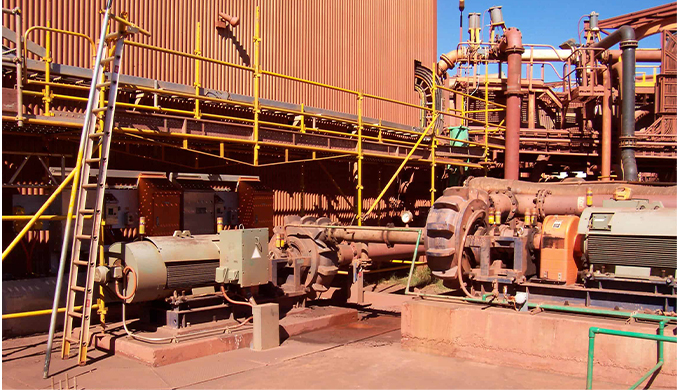Mongolian
- Afrikaans
- Albanian
- Amharic
- Arabic
- Armenian
- Azerbaijani
- Basque
- Belarusian
- Bengali
- Bosnian
- Bulgarian
- Catalan
- Cebuano
- Corsican
- Croatian
- Czech
- Danish
- Dutch
- English
- Esperanto
- Estonian
- Finnish
- French
- Frisian
- Galician
- Georgian
- German
- Greek
- Gujarati
- Haitian Creole
- hausa
- hawaiian
- Hebrew
- Hindi
- Miao
- Hungarian
- Icelandic
- igbo
- Indonesian
- irish
- Italian
- Japanese
- Javanese
- Kannada
- kazakh
- Khmer
- Rwandese
- Korean
- Kurdish
- Kyrgyz
- Lao
- Latin
- Latvian
- Lithuanian
- Luxembourgish
- Macedonian
- Malgashi
- Malay
- Malayalam
- Maltese
- Maori
- Marathi
- Mongolian
- Myanmar
- Nepali
- Norwegian
- Norwegian
- Occitan
- Pashto
- Persian
- Polish
- Portuguese
- Punjabi
- Romanian
- Russian
- Samoan
- Scottish Gaelic
- Serbian
- Sesotho
- Shona
- Sindhi
- Sinhala
- Slovak
- Slovenian
- Somali
- Spanish
- Sundanese
- Swahili
- Swedish
- Tagalog
- Tajik
- Tamil
- Tatar
- Telugu
- Thai
- Turkish
- Turkmen
- Ukrainian
- Urdu
- Uighur
- Uzbek
- Vietnamese
- Welsh
- Bantu
- Yiddish
- Yoruba
- Zulu
Telephone: +86 13120555503
Email: frank@cypump.com
8 сар . 17, 2024 11:27 Back to list
Find Reliable Slurry Pump Suppliers in Your Local Area Today
Finding a Slurry Pump Near You A Comprehensive Guide
When it comes to moving abrasive and viscous materials, slurry pumps are an indispensable piece of equipment used in various industries, including mining, construction, chemical manufacturing, and wastewater treatment. If you are looking for a slurry pump near you for your industrial operations, understanding what a slurry pump is, its types, and how to find the right one for your needs can make the process much smoother.
What is a Slurry Pump?
A slurry pump is specifically designed to pump slurries, which are mixtures of solids and liquids. These pumps are robust and capable of handling materials that other types of pumps cannot, such as thick sludges, concrete slurries, and mineral concentrates. The construction of slurry pumps usually features heavy-duty materials designed to resist wear and erosion, as the abrasive nature of slurries can wear down standard pumps quickly.
Types of Slurry Pumps
There are several types of slurry pumps available, each designed for specific applications
1. Horizontal Slurry Pumps These are the most common types used in various industries. They are ideal for handling low to medium head applications and can manage large volumes of slurry.
2. Vertical Slurry Pumps Used in applications where space is limited, vertical pumps can be submerged in the slurry. They are particularly useful in sumps and pits.
3. Submersible Slurry Pumps These pumps are designed to operate while submerged in the slurry, making them perfect for dewatering applications. They prevent pumping air, which can cause damage and inefficiency.
4. Positive Displacement Pumps These pumps use mechanical means to move the slurry, suitable for handling thick slurries that require higher pressure.
How to Find a Slurry Pump Near You
Finding the right slurry pump can be a challenge, but utilizing some tools can help
1. Online Search Start with a simple online search for “slurry pump near me.” This can help you identify local suppliers and manufacturers. Websites like Google Maps can show you listings of nearby companies that stock slurry pumps.
slurry pump near me

2. Industry Directories Websites like ThomasNet and IndustryNet offer directories of equipment suppliers and manufacturers. You can search for slurry pumps based on your location, narrowing down local options.
3. Trade Shows and Expos Industry trade shows are excellent events to discover new technology and equipment. Check local listings for upcoming events focused on mining, construction, or industrial equipment.
4. Forums and Community Groups Engaging with online forums and community groups specific to your industry can lead to recommendations. Professionals in similar fields often exchange information about reliable pump suppliers.
5. Consulting with Experts If you are unsure of what type of slurry pump you need, consulting with an industry expert or equipment supplier can provide valuable insights. They can help you assess your specific application requirements to recommend the most suitable pump.
Factors to Consider When Choosing a Slurry Pump
When selecting a slurry pump, several factors should be taken into account
- Type of Slurry Understand the characteristics of the slurry you need to pump, including its viscosity, density, and particle size. This will influence the type of pump required.
- Wear and Corrosion Resistance Given that slurries can be abrasive, ensure that the pump materials resist wear and corrosion to prolong the life of the pump.
- Flow Rate and Head Determine the required flow rate and head that the pump needs to achieve in your application to select a pump that can meet these requirements.
- Power Source Be mindful of the power capacity available at your site, as some pumps may require higher voltage or specific power sources.
Conclusion
Finding a slurry pump near you doesn't have to be a daunting task. With the right research and by considering your specific application needs, you can locate the right equipment to help you efficiently manage your slurry materials. Whether it’s through online searches, industry contacts, or consulting with professionals, being informed will ensure you choose a pump that meets your operational requirements.
-
Horizontal Split Case Pump with GPT-4 Turbo | High Efficiency
NewsAug.01,2025
-
ISG Series Pipeline Pump - Chi Yuan Pumps | High Efficiency, Durable Design
NewsAug.01,2025
-
Advanced Flue Gas Desulfurization Pump with GPT-4 Turbo | Durable & Efficient
NewsJul.31,2025
-
ISG Series Vertical Pipeline Pump - Chi Yuan Pumps | Advanced Hydraulic Design&Durable Construction
NewsJul.31,2025
-
ISG Series Vertical Pipeline Pump - Chi Yuan Pumps | Energy Efficient & Low Noise
NewsJul.31,2025
-
pipeline pump - Chi Yuan Pumps Co., LTD.|High Efficiency&Low Noise
NewsJul.31,2025










